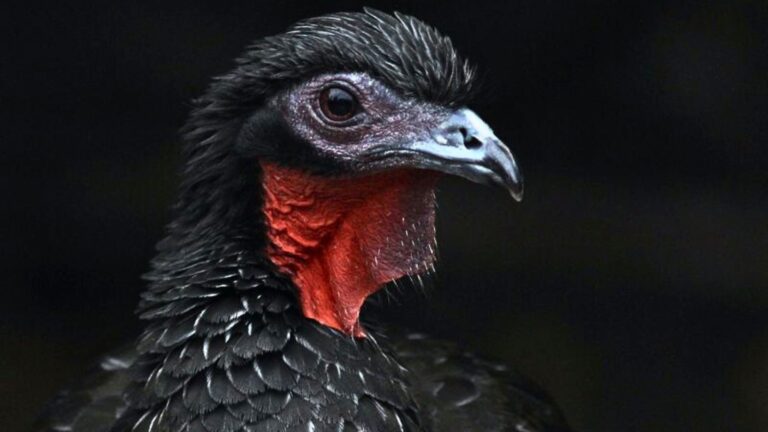10 Pet Bird Anxiety Triggers And 10 Simple Ways To Relax Them
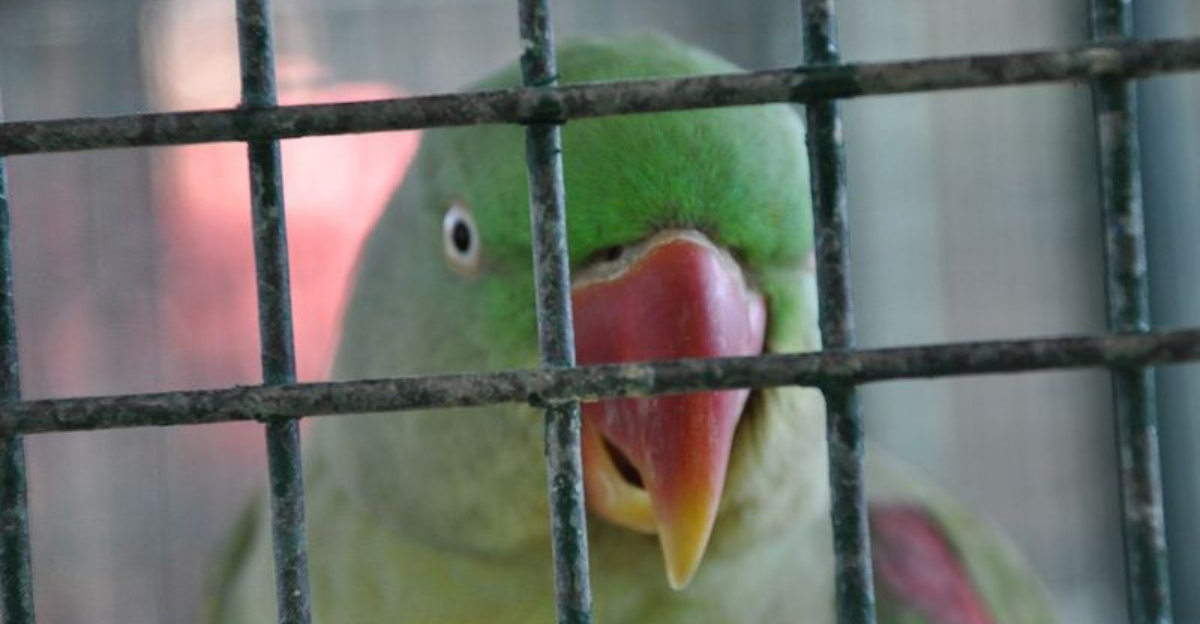
Ever thought about what makes your winged friend tick? Birds, much like us, have their unique quirks and triggers.
While their songs can be melodious, their cries of alarm are anything but. This blog delves into the world of avian anxiety, exploring common triggers and offering creative, effective ways to help your feathered companion relax.
1. Loud Noises
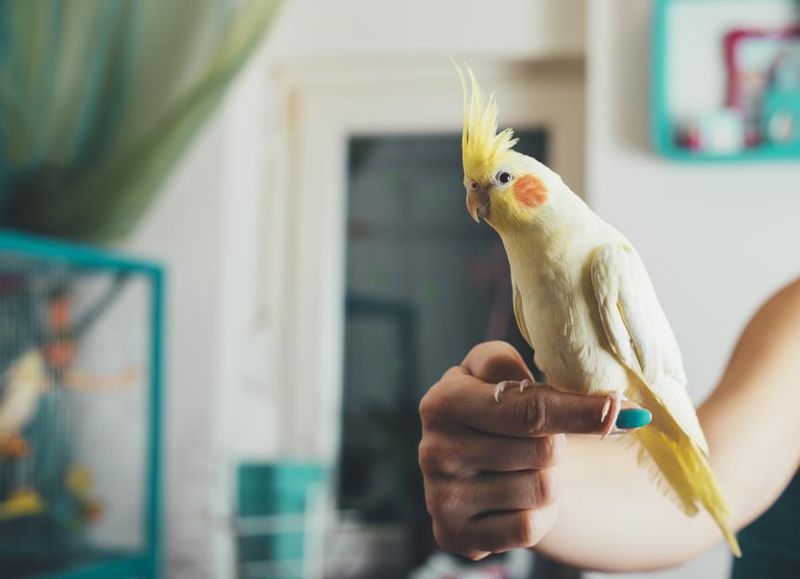
Loud noises are a common anxiety trigger for pet birds. Sudden, unexpected sounds such as vacuums, barking dogs, or thunderstorms can easily startle them, leading to stress and nervous behavior.
It’s not just about volume, but the abruptness that can unsettle your feathered friend. By understanding this sensitivity, you can take steps to create a more soothing environment at home.
Consider playing gentle music or white noise during storms or when using loud appliances, offering a calming auditory buffer.
2. New Environments
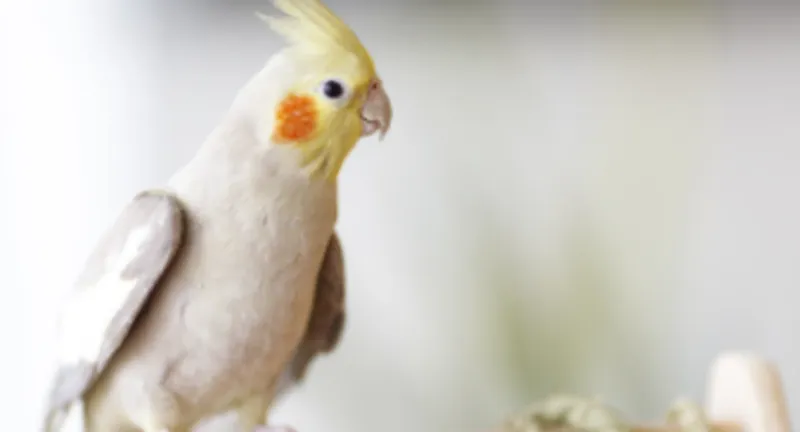
Moving to a new environment can be a daunting experience for birds. The sudden change in surroundings can lead to heightened stress and anxiety.
Birds are creatures of habit, and new sights, sounds, and smells can be overwhelming. To ease this transition, give your bird time to explore and adjust at its own pace.
Gradual acclimation can make all the difference, transforming an intimidating space into a familiar haven.
3. Lack Of Interaction
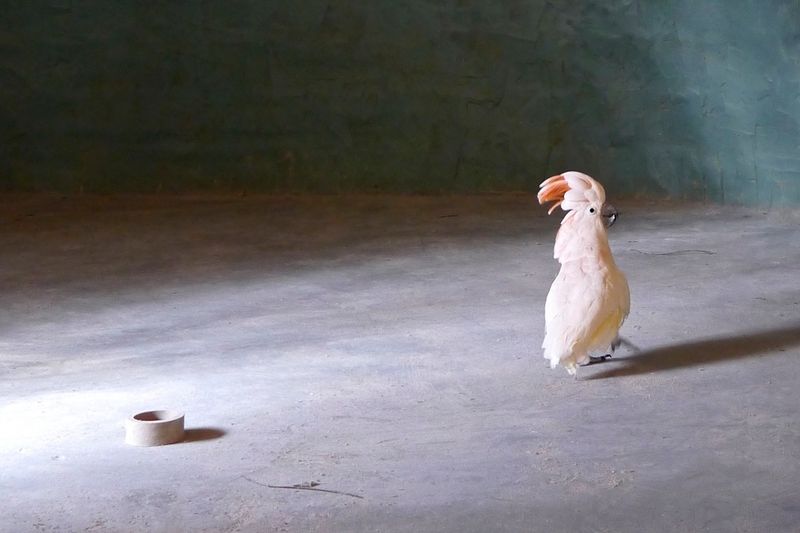
Birds are inherently social animals and thrive on interaction. When left alone for extended periods, they can experience anxiety and loneliness.
This lack of engagement can lead to destructive behaviors such as feather plucking. To keep your bird content, spend dedicated time each day bonding through play, training, or simple companionship.
These interactions not only alleviate anxiety but also strengthen your bond.
4. Changes In Routine
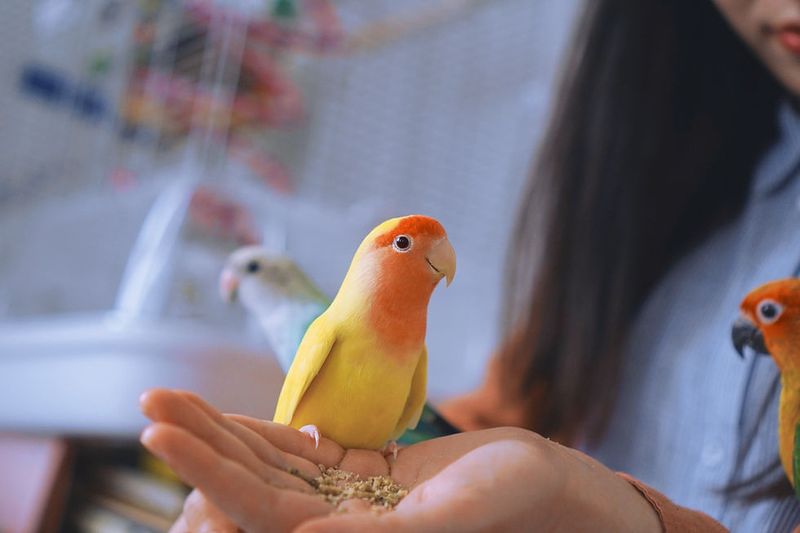
Consistency is key for birds, which thrive on routine. Sudden changes in feeding times, play schedules, or even sleep patterns can cause significant stress.
Birds appreciate predictability, and disruptions can make them anxious. Try to maintain a consistent daily routine, ensuring that any necessary changes are introduced gradually to minimize stress.
This stability helps your bird feel secure and at ease.
5. Other Animals
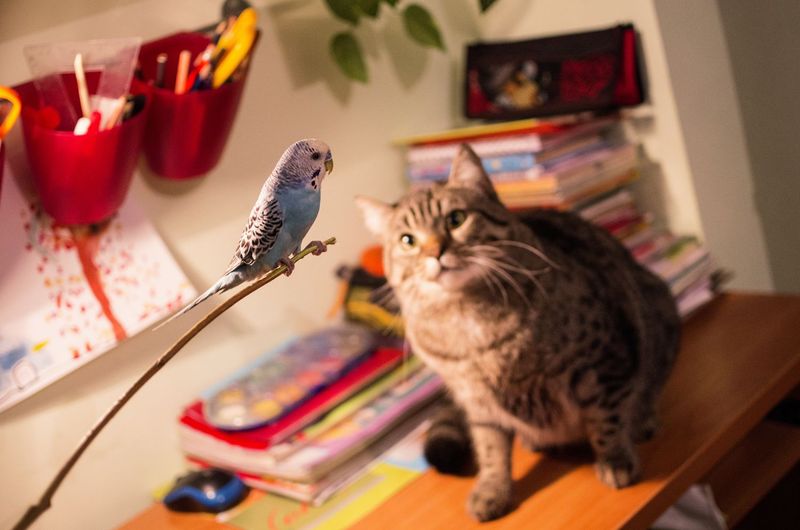
The presence of other animals, especially predators like cats and dogs, can be a significant source of anxiety for birds.
Their natural instincts tell them to be wary, often causing stress and fear. To alleviate this, ensure your bird has a safe, secure space that is out of reach of other pets.
Introduce them under supervision and allow your bird to grow accustomed to its furry companions at a comfortable pace.
6. Sudden Movements
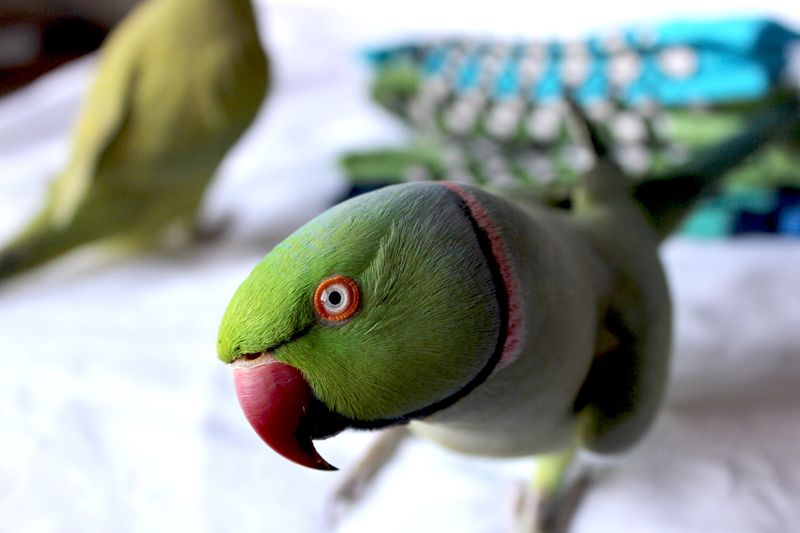
Quick, unpredictable movements can easily startle birds, triggering anxiety. Whether it’s a hand reaching suddenly into the cage or a quick flash of movement nearby, such actions can disrupt their sense of safety.
Birds appreciate gentle, deliberate interactions. Approach slowly and speak softly to reassure them. Over time, these consistent, calm movements build trust and reduce the likelihood of stress responses.
7. Bright Lights
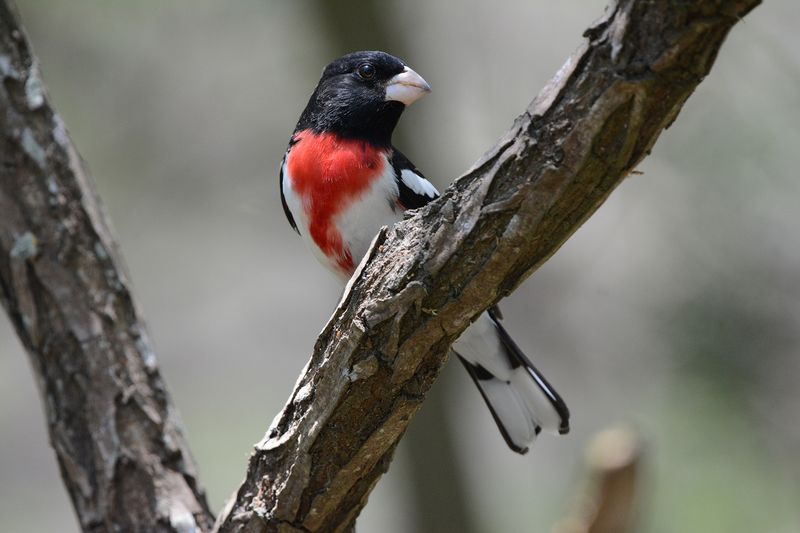
Bright or flashing lights can be unsettling for some birds, causing anxiety or discomfort. This sensitivity can be particularly acute in birds with little exposure to varied lighting.
To create a relaxing environment, use dimmable lights or natural light where possible.
During the night, consider a cover over the cage to provide a sense of security and prevent disturbances from artificial lighting.
8. Separation Anxiety
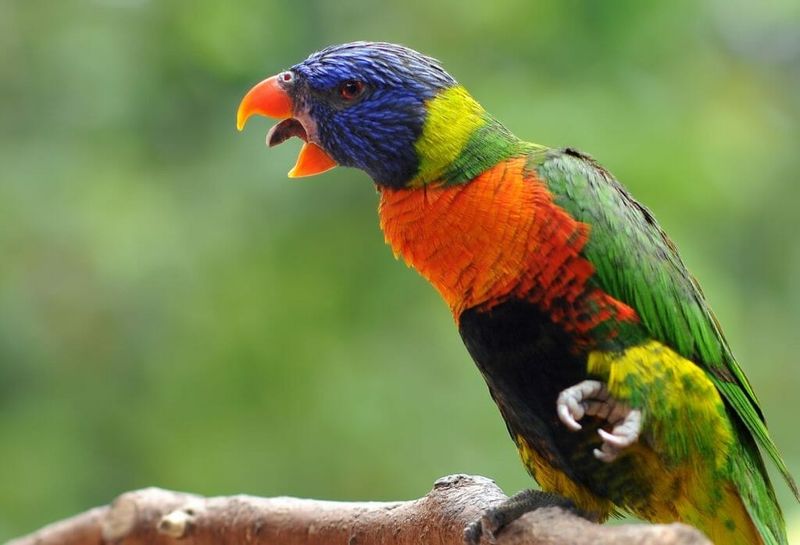
Separation anxiety isn’t just for dogs; birds can experience it too. Many birds form strong bonds with their owners or fellow birds and can become distressed when apart.
This anxiety can manifest in calls, pacing, or destructive behavior. Provide comfort items like a favorite toy or perch, and ensure gradual departures to ease their anxiety.
Over time, your bird will learn that apart doesn’t mean gone forever.
9. Being Caged Too Long
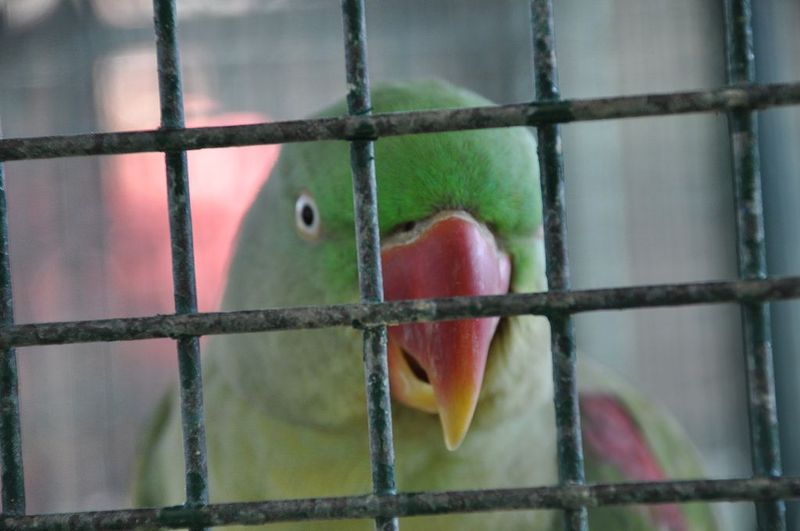
Extended periods in a cage can lead to feelings of confinement and stress in birds. They need time to stretch their wings, explore, and engage in natural behaviors.
Allow your bird regular out-of-cage time in a safe environment to prevent anxiety and promote physical health. This freedom supports their mental well-being and brings joy to their daily routine.
10. Health Issues
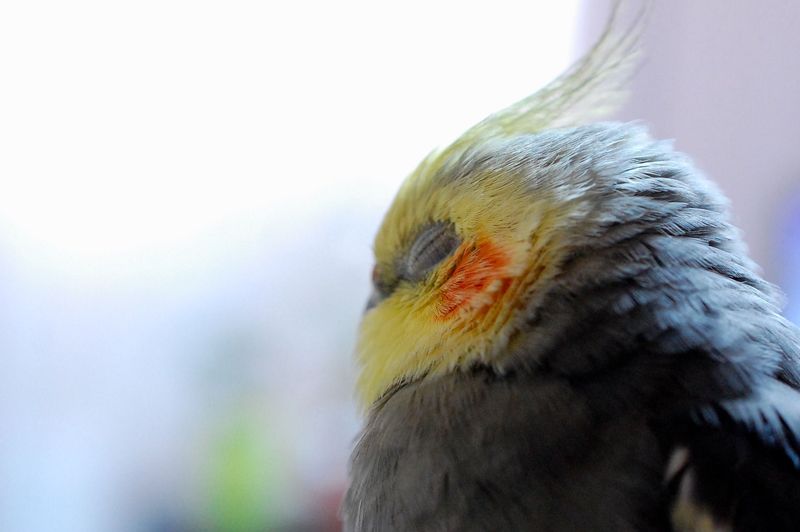
Health issues can be a hidden source of anxiety for birds. Often, signs of illness manifest as nervous behavior or increased stress levels.
Regular check-ups with an avian vet can help identify and address health concerns early. Pay attention to changes in behavior, appetite, or appearance, as these can be indicators that something is amiss.
A healthy bird is a happier, less anxious bird.
11. Create A Quiet Environment
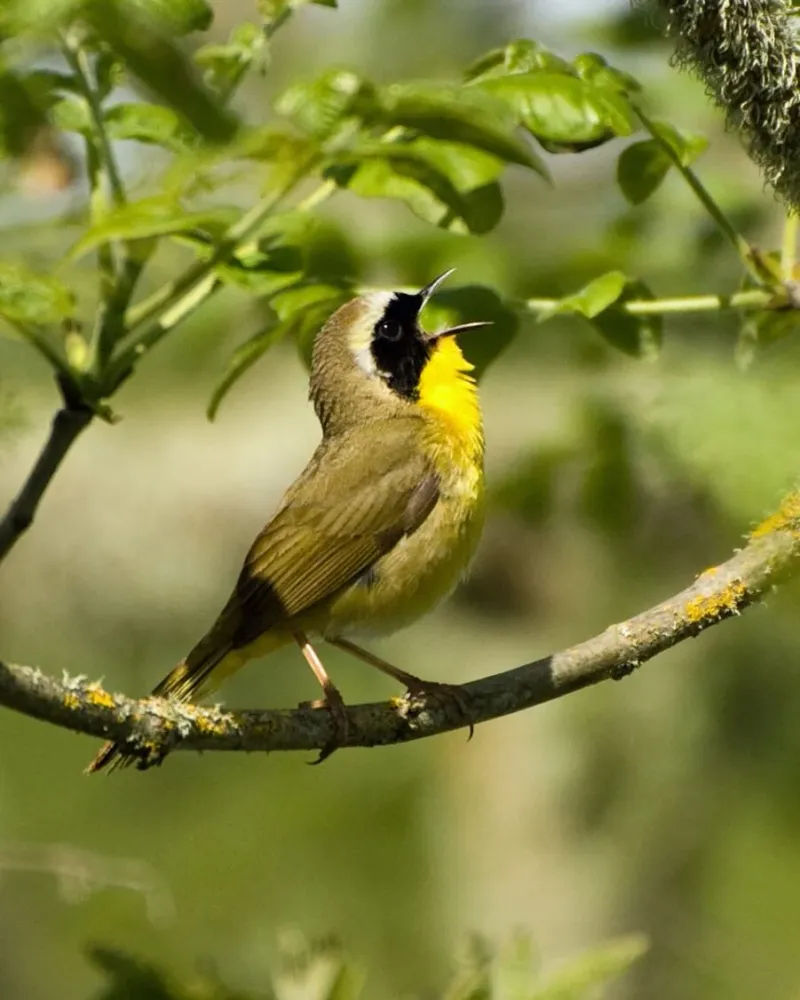
Creating a calming environment is key to reducing anxiety in birds. Soft, gentle sounds like bird-friendly music or white noise can mask unsettling noises and offer comfort.
This serene atmosphere helps your bird feel secure and at ease. Establishing a tranquil space, free from harsh sounds, promotes relaxation and a sense of safety for your feathered friend.
12. Maintain A Consistent Routine
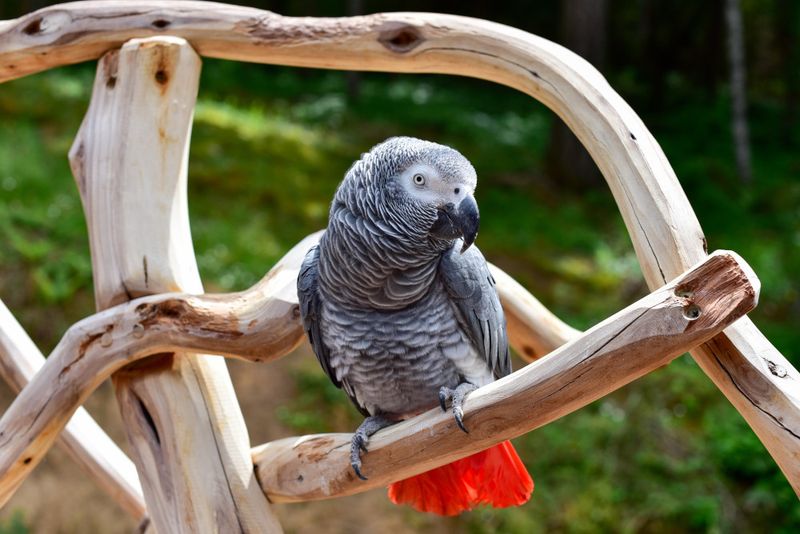
Consistency in daily routines brings comfort to birds. They thrive on predictability, and maintaining regular feeding, playtime, and sleep schedules helps them feel secure.
This stability reduces anxiety and supports their overall well-being. By adhering to a consistent routine, you provide a foundation of trust and reliability that your bird can depend on.
13. Socialize Regularly
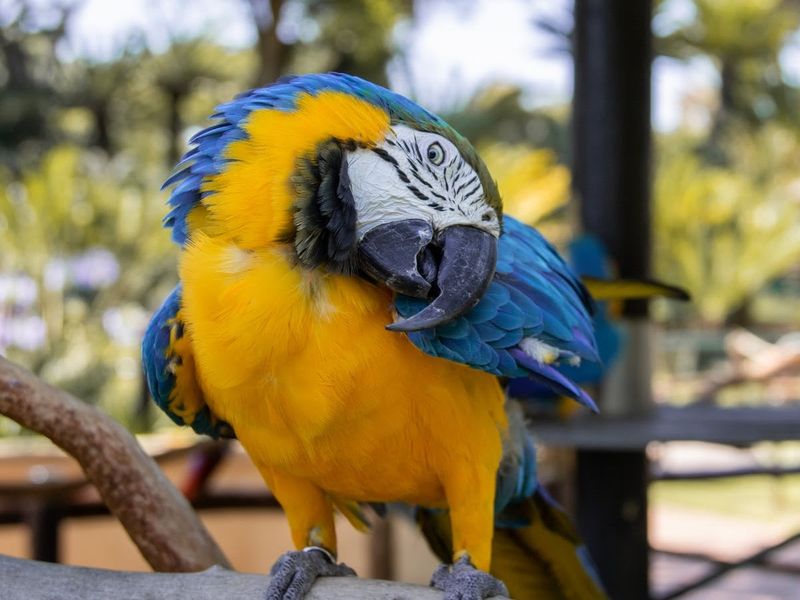
Regular socialization is essential for a bird’s mental and emotional health. Birds need interaction to thrive and feel appreciated. Spend quality time each day engaging in play, training, or simple companionship.
These moments not only alleviate anxiety but also strengthen the bond between you and your bird. Social interactions are the cornerstone of a happy, well-adjusted bird.
14. Provide Safe Spaces
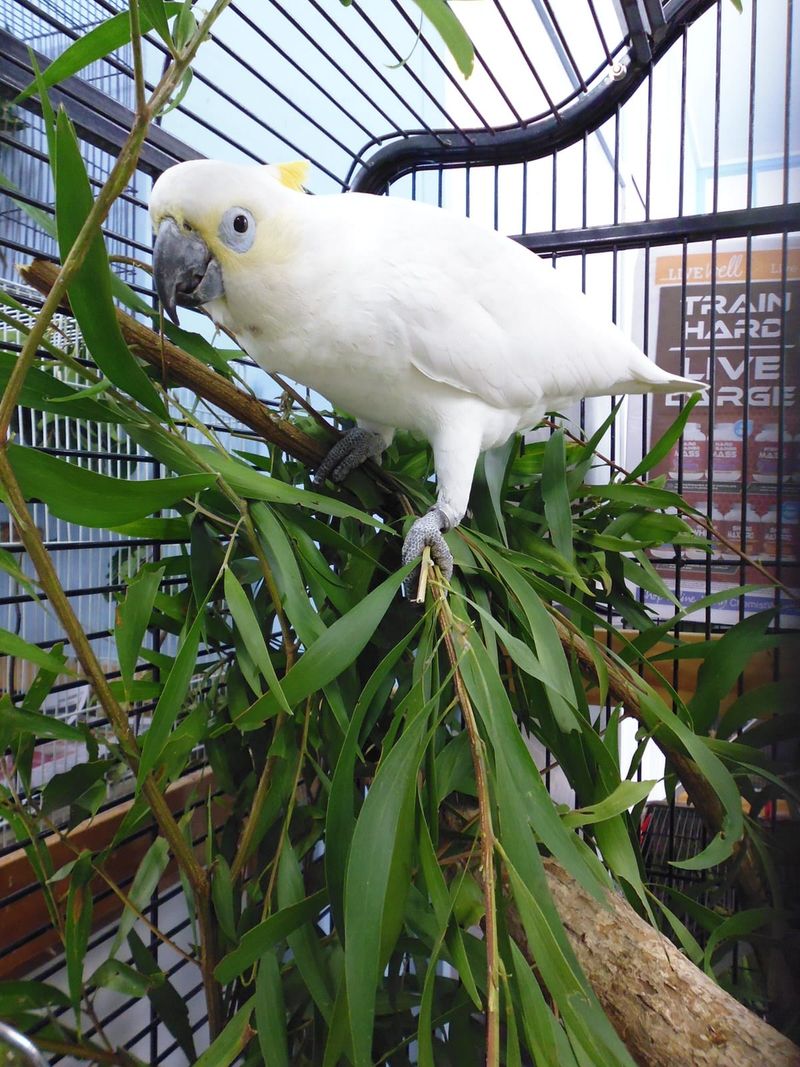
Having a safe space is crucial for a bird’s comfort and security. This sanctuary allows them to retreat and relax away from stressors.
Ensure your bird has access to quiet, comfortable areas where it can rest undisturbed. This provision of safe spaces is essential for their mental well-being, offering a haven of tranquility.
15. Use A Calming Cage Cover
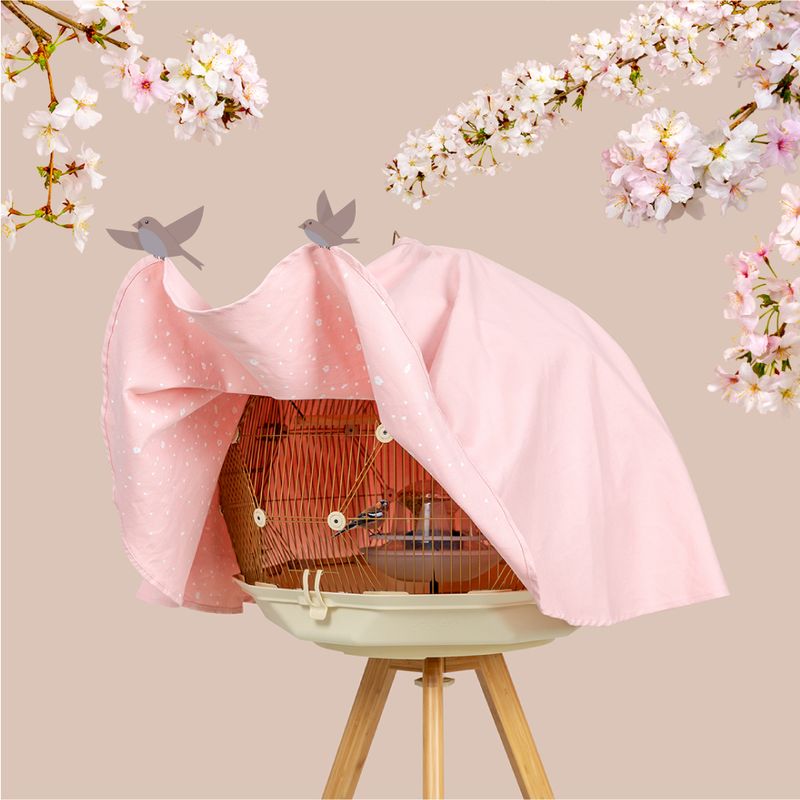
A calming cage cover can provide a sense of security for anxious birds. Covering the cage at night or during stressful situations shields them from disturbances and creates a cozy retreat.
This simple measure can significantly reduce anxiety, offering your bird a quiet space to relax and feel protected.
16. Offer Chew Toys And Treats
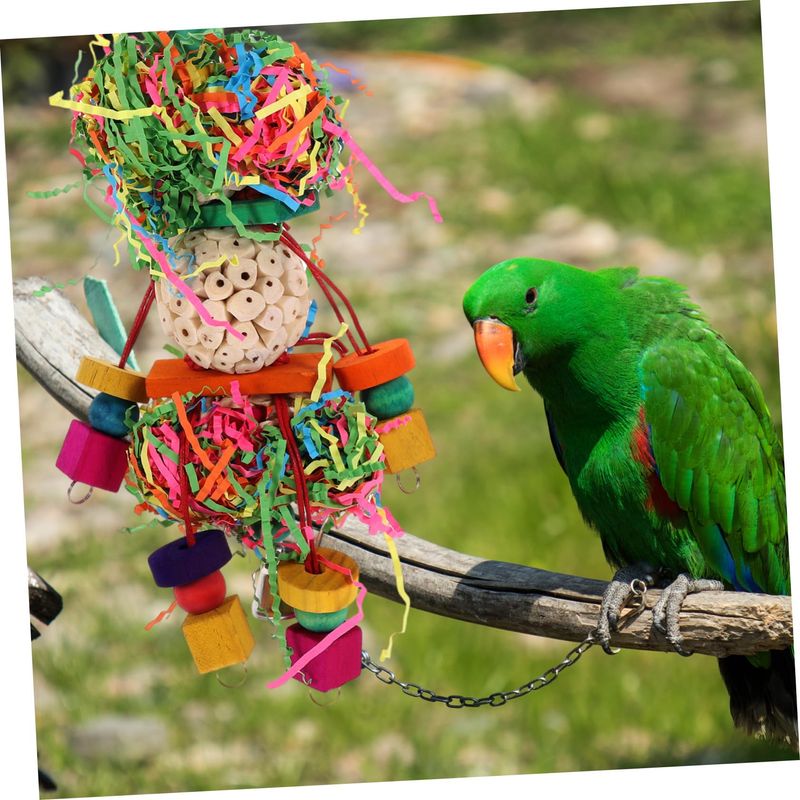
Chew toys and treats are more than just entertainment; they’re vital for a bird’s mental stimulation. Providing them keeps your bird engaged, distracted from anxiety triggers, and mentally satisfied.
These items encourage natural behaviors like chewing and foraging, promoting overall well-being and happiness.
17. Give Them Space
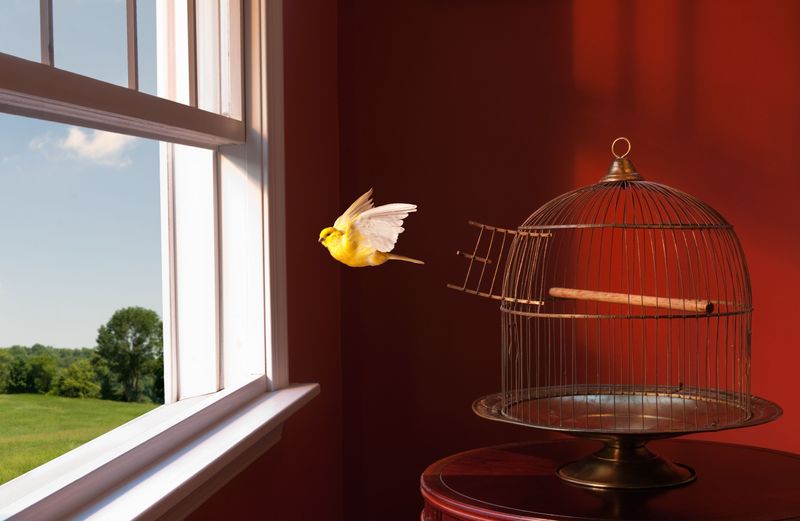
Allowing birds the freedom to stretch and explore outside of their cage is crucial for reducing stress and promoting physical health.
This liberation fosters mental stimulation and joy. Regular out-of-cage time is a key component of a happy bird’s life, turning what could be an ordinary day into an adventure.
18. Gentle Handling
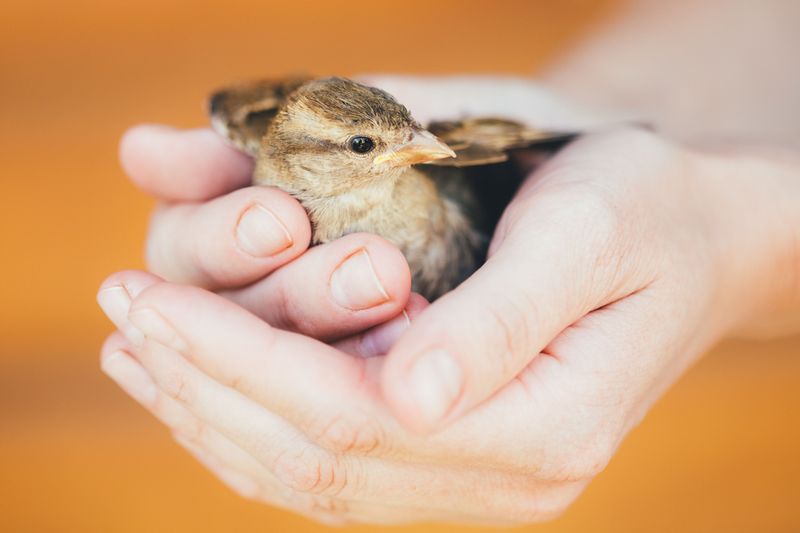
Gentle handling is essential in building trust and reducing anxiety in birds. Approach your bird slowly and with care, speaking softly to reassure it.
These calm interactions foster a sense of security and trust, making it more comfortable and confident in your presence. Gentle handling is the foundation of a loving bond with your bird.
19. Establish A Safe Zone
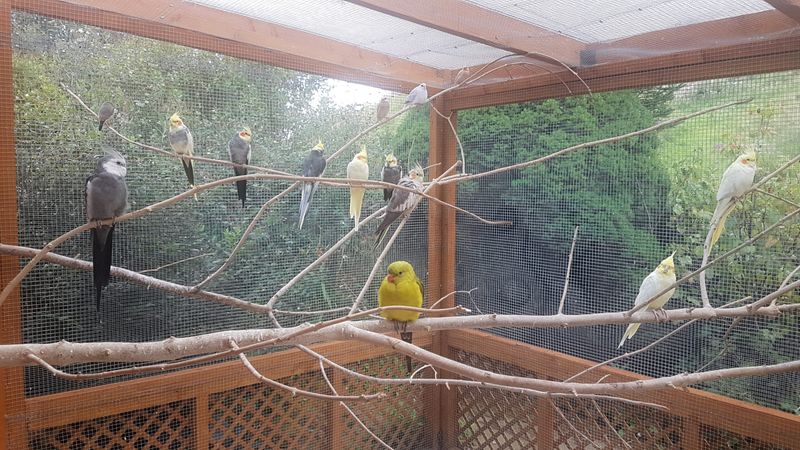
Creating a designated safe zone for your bird provides a place of peace and security. This area should be free from disturbances and potential threats, allowing your bird to relax without worry. Establishing such a zone is crucial in reducing anxiety and promoting a sense of well-being and contentment.
20. Provide A Balanced Diet
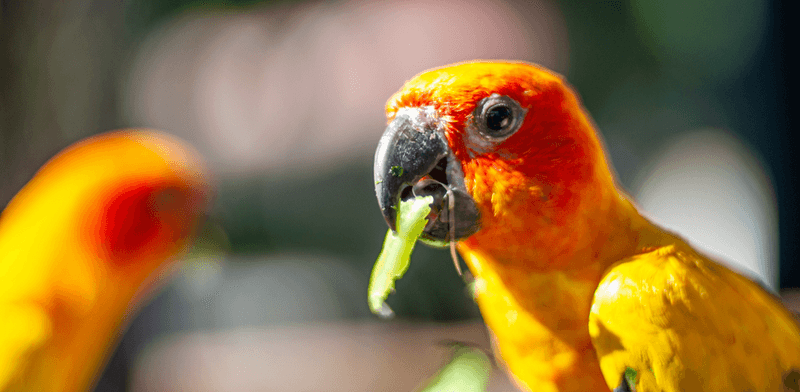
A balanced diet is fundamental for a bird’s health and happiness. Nutrient-rich foods support physical well-being, reducing anxiety caused by nutritional deficiencies.
Regularly offering a variety of healthy foods ensures your bird receives the nutrients it needs to thrive, contributing to its overall mood and vitality.

